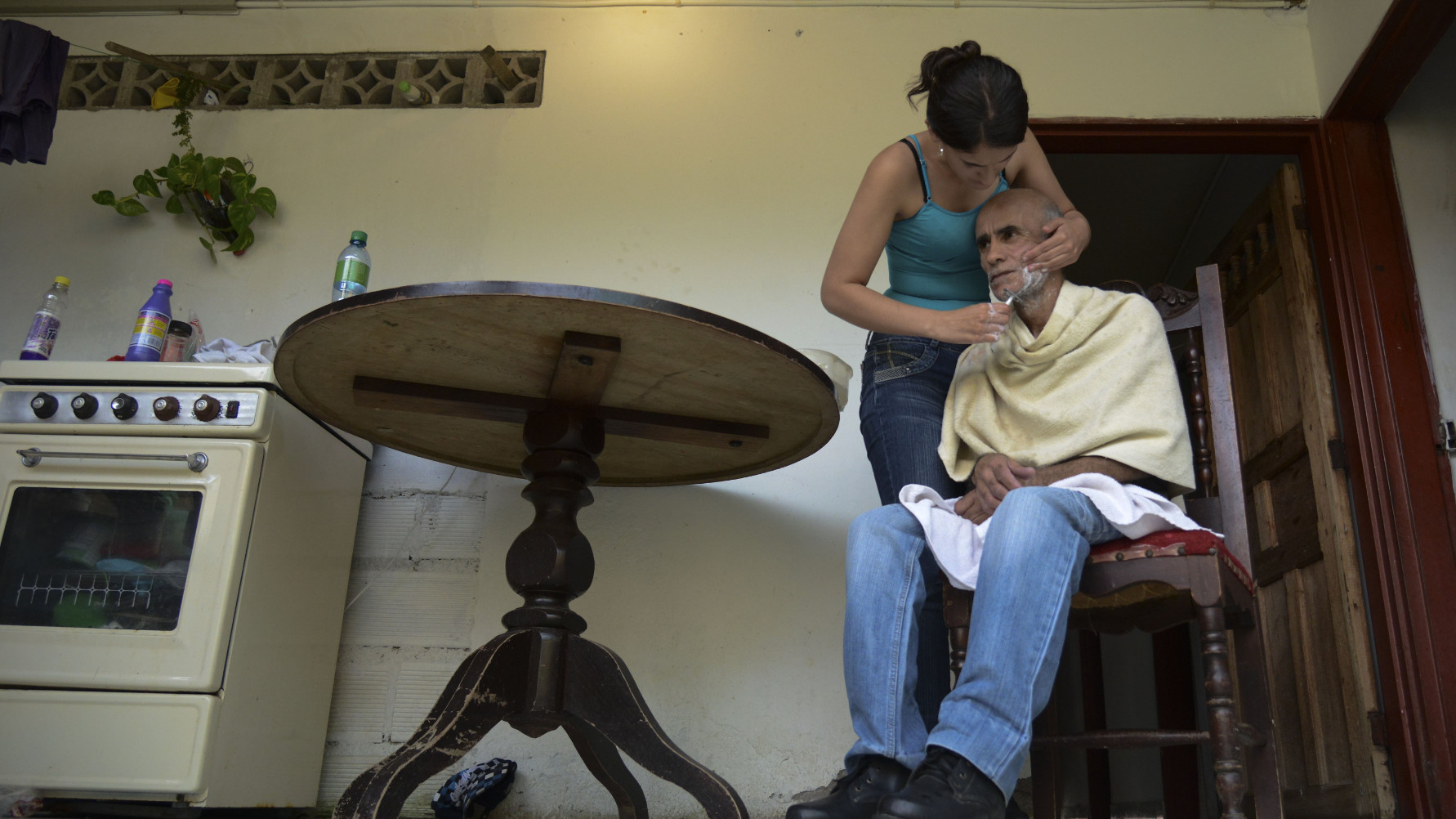Surprising Science
All Stories
Recent research studies the link between creativity and emotional states, offering answers to the age-old question, “How can I be more creative?”
Researchers find out the origins of an ancient feud.
Why don’t we just listen to our body? Because our minds, and our culture, are often louder.
Getting married by a priest or at a courthouse can feel underwhelming. Experimental philosopher Jonathon Keats wants to revolutionize the wedding by ditching the boring old officiants and replacing them with quantum physics.
Structural damage could have started as early as 10 or 12 years old if they were enrolled in tackle football that young.
“30 years after, Hiroshima and Nagasaki are bustling cities. 30 years after Chernobyl, abandoned city. What’s the difference?”
Because, seriously, who wants to stand up and walk on a big treadmill desk all day?
Are they working out personal problems? Or perhaps mulling over the creation of the universe? Researchers say no to both.
Do schools kill creativity? Should white boys ever rap or breakdance? This week on Think Again we’re joined by Maria Konnikova, author of The Confidence Game and Mastermind: How to Think Like Sherlock Holmes
Starches may have played a key role in our ancestors’ diets, helping humans to develop the big brains we have today.
Recent data suggests there are some health benefits from adding a little spice to your foods.
Why is it that in the face of a total lack of evidence for their effectiveness, so many people feel so much affection for quacks?
Turns out parents just don’t understand.
What we get out of kissing, and why some cultures aren’t into it.
Nuclear weapons do horrific widespread damage. Nuclear radiation, even at high doses, does not. But fear of radiation does. We have the survivors of the bombings of Hiroshima and Nagasaki to thank for these lessons. We should honor their suffering by remembering both.
Apparently, there’s a lot more to be worried about than the environment.
Researchers believe there’s something wrong with the brain’s ability to clean out the crud as we age, which leads to a buildup of a protein that causes Alzheimer’s.
People adopt a “protective” gait when they’re distracted.
Our unique capacities were created by a major transition in evolution, which built a need for teamwork and inclusive economics deep into our nature. But many economists — quite unnaturally — exclude its logic from their ideas.
If you’re one of the 85,000 readers who took the three-question quiz I posted last week, chances are you answered some items incorrectly. Like some of my smart, accomplished friends and family […]
Intelligence may be an indicator of a long life, but researchers say you still shouldn’t go overboard with the ice cream.
One researcher explores the ethics of tomorrow through the science fiction stories that entertain us today.
However, it takes time to condition your brain to believe its effects are real.
Over 3,000 studies have now been conducted into acupuncture; it’s time to accept that the ancient Chinese practice is a complete waste of time.
Researchers find in a test of likeness, people choose photos that don’t represent them well at all.
It’s when everything falls away and the only thing you can see is the story unfold.
With the exception of Japan.
A decision requiring cellphone retailers to warn customers of possible radiation risk typifies the emotion-based way that democracy can supersede intelligent government risk policy-making.
Drones are all the buzz today. They make the news regularly appearing everywhere and often where they don’t belong — baseball stadiums, concert stages and even the White House lawn. Is […]




























